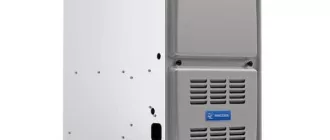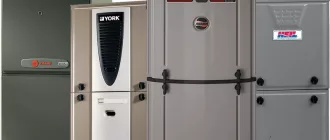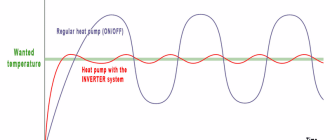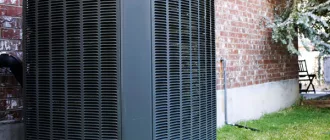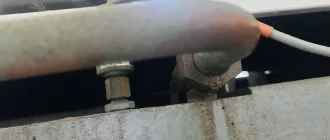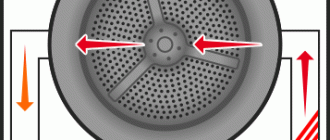Reasons for Air Conditioner Failure
When the summer heat hits Buckeye Lake, Ohio, a functioning air conditioner becomes a necessity. However, air conditioner failure can occur and leave homeowners sweating in distress. Understanding the common causes of air conditioner failure and their solutions can help homeowners prevent or quickly resolve these issues.
One common cause of air conditioner failure is a malfunctioning evaporator or condenser. These components play a crucial role in the cooling process, and if they are not functioning properly, the air conditioner may not cool the air effectively. Regular maintenance and cleaning of these parts can help prevent failure.
The fan and thermostat are also important components of an air conditioner, and issues with either can lead to failure. A broken fan can prevent the cool air from circulating properly, while a faulty thermostat can result in inaccurate temperature control. Regular inspection and repair of these components can ensure the smooth operation of the air conditioner.
Another common cause of air conditioner failure is a dirty coil. Over time, the coil can accumulate dirt and debris, reducing its ability to transfer heat. Regular cleaning can prevent this issue and help maintain the efficiency of the air conditioner. Additionally, refrigerant leakage, compressor failure, or motor issues can also lead to air conditioner failure. These complex issues typically require professional assistance for proper diagnosis and repair.
By understanding the common causes of air conditioner failure and taking the necessary steps to prevent or resolve these issues, homeowners in Buckeye Lake, Ohio can ensure the performance and longevity of their air conditioning system during the sweltering summer months.
Top Reasons for Air Conditioner Failure
There are several common reasons why an air conditioner may experience failure. These issues can range from minor problems that can be easily fixed to major mechanical failures that may require professional assistance.
One of the most common reasons for air conditioner failure is a refrigerant leak. The refrigerant is the substance that cools the air within the system. When there is a leak, the refrigerant levels can drop, leading to reduced cooling capacity and inefficient operation. It is important to identify and fix any refrigerant leaks promptly to prevent further damage.
Another common cause of air conditioner failure is a faulty fan motor. The fan helps circulate the cool air throughout the room. If the fan motor is not functioning properly, it can result in poor airflow and insufficient cooling. Replacing the fan motor can often resolve this issue.
A leakage in the condenser or evaporator coils is another potential cause of air conditioner failure. These coils are responsible for transferring heat, and any leaks can impair their ability to perform this function effectively. Repairing or replacing the damaged coils can restore proper cooling performance.
The compressor is a crucial component of the air conditioning system that pressurizes and circulates the refrigerant. If the compressor fails, the entire system may cease to function. Compressor failure can be caused by various factors, including electrical issues, overheating, or mechanical problems. In such cases, it is usually necessary to replace the compressor to restore the functionality of the air conditioner.
In summary, common reasons for air conditioner failure include refrigerant leaks, faulty fan motors, leakage in the condenser or evaporator coils, and compressor issues. Identifying and addressing these problems promptly can help ensure the optimal performance and longevity of an air conditioning system.
| Refrigerant leak | Identify and fix leaks promptly |
| Faulty fan motor | Replace the fan motor |
| Leakage in condenser or evaporator coils | Repair or replace the damaged coils |
| Compressor failure | Replace the compressor |
Lack of Regular Maintenance
One common cause of air conditioner failure is a lack of regular maintenance. Without proper maintenance, various components of the air conditioner can experience issues that ultimately lead to failure.
One potential problem that can arise from a lack of maintenance is leakage. Over time, the connections between components such as the motor, coil, and compressor can become loose, resulting in refrigerant leakage. This can cause the air conditioner to lose its cooling capacity and fail to maintain a comfortable temperature.
Inadequate maintenance can also lead to problems with the evaporator coil. If the coil becomes dirty or clogged with dust and debris, it can restrict airflow and reduce the air conditioner’s efficiency. This can put strain on the compressor and cause it to overheat, leading to failure.
Another issue that can arise from a lack of regular maintenance is a decrease in the level of refrigerant. The refrigerant is responsible for cooling the air and absorbing heat from the indoor air. If the refrigerant level is low, the air conditioner will struggle to cool the air effectively and may eventually fail.
Regular maintenance also includes cleaning and inspecting the fan and condenser. If the fan becomes clogged with dirt and debris, it can cause the airflow to be restricted, leading to reduced efficiency and potential overheating. The condenser can also become dirty over time, which can hinder its ability to release heat, causing the air conditioner to work harder and potentially fail.
To prevent air conditioner failure due to a lack of regular maintenance, it is important to schedule routine maintenance and inspections. This can include cleaning or replacing air filters, checking and tightening connections, cleaning the evaporator coil, and ensuring proper refrigerant levels. By staying proactive with maintenance, you can help prevent common issues and extend the lifespan of your air conditioner.
Dirty Air Filters
Dirty air filters are one of the most common causes of air conditioner failure. When the air filters become clogged with dirt, dust, and debris, it restricts airflow and reduces the efficiency of the air conditioning system. This can lead to a variety of issues, including:
-
Poor Air Quality: When the air filters are dirty, they are unable to effectively remove pollutants and allergens from the air, reducing the overall indoor air quality.
-
Motor Overload: Restricted airflow causes the air conditioner’s motor to work harder, leading to increased wear and tear, and potential motor failure.
-
Condenser Issues: The condenser, which is responsible for removing heat from the refrigerant, can become overheated due to reduced airflow caused by dirty air filters. This can result in a range of issues, including decreased cooling efficiency and potential damage to the condenser.
-
Fan Problems: A clogged air filter can also affect the fan’s ability to operate efficiently. This can lead to reduced airflow, uneven cooling, and an increase in energy consumption.
-
Leakage: In some cases, clogged air filters can result in condensate leakage. When the air filters are dirty, the evaporator coil can freeze, causing excess condensation to build up and potentially leak from the unit.
-
Thermostat Malfunction: Dirty air filters can also impact the thermostat’s ability to accurately measure and maintain the desired temperature. This can result in inconsistent cooling and comfort issues.
Regularly replacing or cleaning the air filters is essential for the proper functioning of the air conditioner. It is recommended to clean or change the air filters every 1-3 months, depending on the manufacturer’s instructions and the level of dust and debris in the environment.
Refrigerant Leaks
One common cause of air conditioner failure is refrigerant leaks. The refrigerant is the substance responsible for cooling the air inside the unit. When there is a leak, the refrigerant level drops, making the AC less efficient in cooling the air.
A refrigerant leak can occur in various parts of the AC system, including the evaporator coil, compressor, condenser coil, or the connecting lines. The leaks can be caused by corrosion, aging components, or even physical damage.
When a refrigerant leak occurs, it can lead to several problems. Firstly, the air conditioner may not cool the space effectively, as there is not enough refrigerant circulating. This can result in the air being warm or humid. Secondly, a refrigerant leak can put a strain on the AC system’s components, such as the compressor and motor, which can lead to their failure over time.
It is important to address refrigerant leaks promptly to avoid further issues. The first step is to identify the location of the leak, which may require the assistance of a professional technician. The technician will then repair the leak and recharge the refrigerant to the correct level.
To prevent refrigerant leaks in the future, regular maintenance is essential. This includes cleaning or replacing air filters, inspecting the coils for damage, and checking the refrigerant level. Additionally, it is important to ensure that the thermostat is set at the correct temperature to avoid unnecessary strain on the AC system.
In conclusion, refrigerant leaks can cause air conditioner failure and reduce the efficiency of cooling. Prompt identification and repair of the leak, as well as regular maintenance, are crucial in preventing further issues and ensuring that the AC system functions properly.
Electrical Issues
Electrical issues are another common cause of air conditioner failure. Problems with the electrical components can prevent the AC unit from functioning properly. Here are some of the most common electrical issues:
- Faulty wiring: Poorly installed or damaged wiring can cause the air conditioner to malfunction. It can result in issues like overheating or short circuits.
- Refrigerant leakage: If there is a refrigerant leakage in the AC unit, it can lead to electrical problems. The refrigerant is a chemical compound that helps in the cooling process. If the refrigerant level is low or leaking, it can put excessive strain on the electrical components.
- Faulty condenser motor: The condenser motor is responsible for spinning the fan and the compressor. If the motor is faulty or damaged, it can cause the air conditioner to stop working or not cool effectively.
- Malfunctioning thermostat: The thermostat is responsible for regulating the temperature in the air conditioner. If the thermostat malfunctions, it can cause the AC unit to turn on and off or not function at all.
- Faulty fan motor: The fan motor helps in circulating the air throughout the AC unit. If the fan motor is faulty, it can result in poor airflow and affect the cooling efficiency of the air conditioner.
- Issues with the compressor: The compressor is the heart of the air conditioner. If it is not working properly, it can cause the AC unit to stop cooling. Electrical issues like overheating or motor failure can affect the compressor’s functionality.
- Problems with the evaporator coil: The evaporator coil is responsible for absorbing heat from the air. If there are electrical problems with the evaporator coil, like a damaged coil or blocked airflow, it can affect the overall cooling performance of the air conditioner.
To address electrical issues, it is essential to hire a professional technician who can diagnose and fix the problem. They can inspect the wiring, check for refrigerant leaks, and replace any faulty electrical components. Regular maintenance and professional servicing can help prevent electrical issues and prolong the lifespan of your air conditioner.
Thermostat Problems
Thermostat problems are a common cause of air conditioner failure. A malfunctioning thermostat can lead to various issues that can affect the overall performance of the AC system.
- Incorrect temperature reading: If the thermostat is not accurately measuring the temperature, it can cause the AC to turn on and off at the wrong times. This can lead to discomfort and energy inefficiency.
- Failure to turn on/off: A faulty thermostat may not send the signal to turn on or off the AC unit, resulting in a lack of cooling or unnecessary operation. This can put a strain on the compressor and waste energy.
- Short cycling: When the thermostat senses the temperature incorrectly, it can cause the AC unit to short cycle, which means it turns on and off frequently. This can cause wear and tear on the compressor and other components.
- Broken or loose wiring: Damaged or loose wiring can prevent the thermostat from properly communicating with the rest of the AC system. This can result in inconsistencies in temperature control and overall performance.
To resolve thermostat problems, it is recommended to check for loose or damaged wiring and replace or repair as necessary. If the thermostat is not functioning correctly, it may need to be replaced. Regular maintenance and calibration of the thermostat can also help prevent these issues from occurring.
Blocked Condenser Unit
A blocked or dirty condenser unit can cause air conditioner failure. The condenser unit is responsible for releasing heat from the refrigerant, allowing it to cool down and be recirculated back into the system. If the condenser unit becomes blocked by dirt, dust, or debris, it can hinder the heat transfer process and cause the air conditioner to malfunction.
The most common cause of a blocked condenser unit is a dirty coil. Over time, dirt and debris can accumulate on the coil, reducing its efficiency and hindering the heat transfer process. This can lead to increased energy consumption, decreased cooling capacity, and potential damage to the compressor or other components.
Another possible cause of a blocked condenser unit is refrigerant leakage. If there is a refrigerant leak in the system, the condenser coil may become partially or completely blocked by ice or frost. This not only obstructs the heat transfer process but also puts added strain on the compressor and other components.
To prevent and resolve a blocked condenser unit, regular maintenance is essential. This includes cleaning or replacing the condenser coil to remove any dirt or debris that may have accumulated. It is also important to check for and repair any refrigerant leaks to prevent ice or frost buildup on the coil.
In addition to regular maintenance, it is recommended to keep the area around the condenser unit clear of any obstructions, such as plants, furniture, or debris. This will ensure proper airflow and prevent the condenser unit from becoming blocked.
In conclusion, a blocked condenser unit can cause air conditioner failure. Regular maintenance, including cleaning the condenser coil and checking for refrigerant leaks, is crucial to prevent and resolve this issue. Keeping the area around the condenser unit clear of obstructions is also important for proper airflow. By addressing and resolving a blocked condenser unit, the air conditioner can continue to function efficiently and effectively.
Frozen Evaporator Coils
The evaporator coil in an air conditioning unit is responsible for cooling the air that gets circulated throughout your home. However, if the coils become frozen, it can prevent the system from functioning properly.
One of the common causes for frozen evaporator coils is a refrigerant leak. When refrigerant levels are low, it can cause the coils to freeze up. This can happen due to a variety of reasons, such as a damaged coil or a malfunctioning motor.
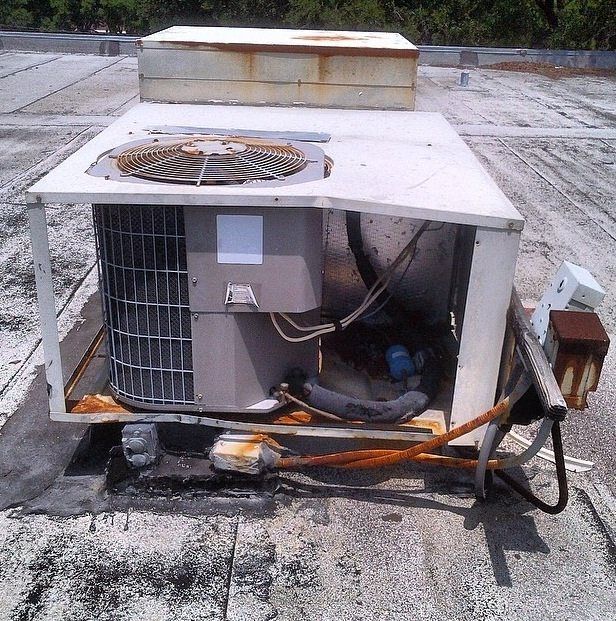
Another reason for frozen evaporator coils is a dirty coil. If the coil is covered in dirt and debris, it can restrict the airflow and cause the coil to freeze. Regular maintenance, such as cleaning the coil, can help prevent this issue.
A faulty thermostat can also lead to frozen evaporator coils. If the thermostat is not working properly and does not shut off the cooling system when the desired temperature is reached, it can cause the coils to freeze.
In some cases, a frozen evaporator coil can be caused by a malfunctioning fan or a blocked condenser. If the fan is not properly circulating the air or if the condenser is blocked by debris, it can lead to a buildup of cold air in the coils, causing them to freeze.
To prevent frozen evaporator coils, it is important to regularly maintain your air conditioning unit. This includes checking for refrigerant leaks, cleaning the coils, and ensuring that the thermostat is functioning correctly. If you notice any signs of a frozen coil, such as reduced airflow or warm air coming from the vents, it is important to address the issue as soon as possible to prevent further damage to your system.
Improper Installation
One of the top reasons for air conditioner failure is improper installation. An air conditioner system consists of various components such as the thermostat, evaporator, compressor, fan, and other parts. If these components are not installed correctly, it can lead to various problems.
One common issue is the leakage of refrigerant. Improper installation can cause leakage in the refrigerant lines, which affects the cooling efficiency of the system. This can result in poor cooling performance and increased energy consumption.
Another problem that can arise from improper installation is a damaged coil. The coil is responsible for transferring heat between the indoor and outdoor units. If the coil is not installed properly, it can get damaged and reduce the overall performance of the air conditioner.
Improper installation can also cause problems with the condenser. The condenser is responsible for releasing heat from the refrigerant. If it is not installed correctly, it can lead to overheating or inefficient cooling.
In addition, improper installation can impact the proper functioning of the fan. The fan is responsible for circulating air throughout the system. If it is not installed properly, it may not function optimally, resulting in poor airflow and reduced cooling efficiency.
To avoid these issues, it is crucial to hire a professional technician for the installation of your air conditioner. A skilled technician will ensure that all components are installed correctly, preventing any potential problems. Regular maintenance and inspections can also help identify and resolve any installation issues.
In conclusion, improper installation is a common cause of air conditioner failure. It can lead to problems such as refrigerant leakage, damaged coil, inefficient cooling, and poor airflow. To prevent these issues, it is essential to hire a professional technician for installation and regular maintenance.
Faulty Compressor
A faulty compressor is one of the most common causes of air conditioner failure. The compressor is responsible for pressurizing and circulating the refrigerant in the system, which is vital for cooling the air. If the compressor fails, the air conditioner will not be able to function properly.
There are several reasons why a compressor may fail. One common cause is a lack of maintenance, which can lead to the accumulation of dirt and debris on the compressor coil. This can restrict airflow and cause the compressor to overheat, eventually leading to failure.
Another common cause of compressor failure is a faulty motor. The motor is responsible for powering the compressor and if it malfunctions, the compressor will not be able to run efficiently. This can cause the air conditioner to work harder than it should and can lead to premature compressor failure.
Problems with the condenser or evaporator coils can also contribute to compressor failure. If there is a blockage or leakage in the coils, it can put extra strain on the compressor, causing it to fail. In addition, if the coils are dirty or frozen, they can restrict the flow of refrigerant and cause the compressor to overwork.
Other factors that can affect the performance of the compressor include a faulty thermostat, which can cause the compressor to turn on and off too frequently, and a malfunctioning fan, which can lead to inadequate airflow and overheat the compressor.
To prevent compressor failure, regular maintenance is essential. This includes cleaning or replacing the compressor coil, checking the motor for any signs of wear or damage, and ensuring that the condenser and evaporator coils are clean and free from blockages. It is also important to monitor the thermostat and fan to ensure they are functioning correctly.
If you suspect that your air conditioner’s compressor is faulty, it is important to contact a professional HVAC technician for inspection and repair. Attempting to fix the compressor yourself could cause further damage and may void any warranties.
Insufficient Airflow
One of the common causes of air conditioner failure is insufficient airflow. Insufficient airflow can lead to inadequate cooling and decreased performance of the air conditioner. There are several reasons why this might occur:
- Leakage in the air ducts: Air ducts are responsible for distributing cooled air throughout the room or building. If there is a leakage in the air ducts, the cooled air may escape before reaching its intended destination, resulting in insufficient airflow.
- Blocked evaporator coil: The evaporator coil is responsible for absorbing heat from the indoor air, allowing the air conditioner to cool the room. If the evaporator coil becomes blocked by dirt, dust, or debris, it can hinder the airflow and reduce the cooling efficiency of the system.
- Malfunctioning motor or compressor: The motor and compressor are essential components of the air conditioner. If either of these components malfunctions, it can result in decreased airflow and inadequate cooling.
- Incorrect thermostat settings: Incorrect thermostat settings can also lead to insufficient airflow. If the thermostat is set too high, the air conditioner may not operate at its full capacity, resulting in reduced airflow.
- Dirty condenser coil: The condenser coil is responsible for releasing the heat that is absorbed by the evaporator coil. If the condenser coil becomes dirty or blocked, it can hinder the airflow and decrease the cooling efficiency of the air conditioner.
- Low refrigerant levels: Insufficient refrigerant levels can also cause insufficient airflow. The refrigerant circulates through the coils of the air conditioner, absorbing and releasing heat. If there is a leak in the system and the refrigerant levels are low, it can lead to reduced airflow and inadequate cooling.
To address the issue of insufficient airflow, it is important to regularly maintain and clean the air conditioner. This includes cleaning or replacing air filters, checking for and repairing any leakage in the air ducts, cleaning the evaporator and condenser coils, and ensuring proper thermostat settings. If the issue persists, it is recommended to seek professional help to diagnose and repair the air conditioner.
Sensor Malfunction
Sensor malfunction is one of the common causes of air conditioner failure. The sensors in an air conditioner play a crucial role in regulating the temperature and controlling the overall functioning of the system. If the sensors become faulty or malfunction, it can disrupt the normal functioning of the air conditioner.
The refrigerant sensor is responsible for monitoring the level of refrigerant in the system. If this sensor malfunctions, it can result in inadequate cooling or even complete failure of the air conditioner. Similarly, the motor sensor detects and controls the speed of the motor that drives the compressor. A malfunctioning motor sensor can lead to issues with the compressor, affecting the overall performance of the air conditioner.
In addition to these sensors, there are other sensors in an air conditioner, such as the coil, condenser, fan, and evaporator sensors. Each of these sensors plays a crucial role in ensuring the proper functioning of the air conditioner. A malfunction in any of these sensors can lead to a range of problems, from inadequate cooling to complete failure of the system.
One of the common causes of sensor malfunction is a sensor getting dirty or covered with dust. Dirt and dust can interfere with the proper functioning of the sensors, resulting in inaccurate readings and incorrect temperature control. Regular cleaning and maintenance of the sensors can help prevent sensor malfunction.
Another common cause of sensor malfunction is a leakage in the refrigerant system. If there is a refrigerant leakage, it can affect the performance of the sensors and cause them to malfunction. This can result in inadequate cooling and other issues with the air conditioner. Identifying and fixing any refrigerant leakage is important to prevent sensor malfunction.
| Dirty or dusty sensors | Regular cleaning and maintenance of the sensors |
| Refrigerant leakage | Identifying and fixing any refrigerant leakage |
Overall, sensor malfunction can significantly impact the performance and efficiency of an air conditioner. Regular maintenance, cleaning, and prompt repair of any sensor issues are essential to ensure the proper functioning of the air conditioner and prevent premature failure.
Drainage Problems
One common issue that can cause air conditioner failure is drainage problems. The air conditioner’s drainage system is responsible for removing excess moisture from the air and preventing it from building up inside the unit.
If the drainage system becomes clogged or blocked, the air conditioner may experience a range of problems. Firstly, the compressor may overheat due to the increased workload caused by the excess moisture. This can lead to a breakdown of the compressor, resulting in the need for costly repairs or replacement.
Additionally, a clogged drainage system can also cause issues with the refrigerant flow. The refrigerant is responsible for cooling the air as it passes over the evaporator coil. If the drainage system is blocked, the refrigerant cannot properly remove heat from the air, leading to reduced cooling efficiency.
Leakage is another potential consequence of drainage problems. If the drainage system is not functioning correctly, water can accumulate and leak from the unit. This can damage the surrounding area and potentially lead to electrical issues if the water reaches the motor or thermostat.
To prevent drainage problems, it is essential to regularly clean and maintain the drainage system. This can involve removing any debris or obstructions that may be blocking the drainage pipe. Additionally, using a condensate pump can help ensure proper water removal.
In conclusion, drainage problems can lead to air conditioner failure and various issues, including compressor overheating, reduced cooling efficiency, and potential water damage. Regular maintenance and keeping the drainage system clear are essential to prevent these problems and ensure the proper functioning of the air conditioner.
Aging Equipment
One of the common causes of air conditioner failure is aging equipment. Over time, various components of the air conditioner can wear out and become less efficient, resulting in decreased cooling performance and increased energy consumption.
The fan, coil, compressor, and other parts of the air conditioner can experience wear and tear over the years, leading to potential issues. For example, the fan may start to make noise or operate at a slower speed, reducing the airflow and hindering the cooling process.
The coil can become dirty or develop leaks, causing inefficient heat transfer and reduced cooling capacity. Likewise, the compressor, responsible for circulating the refrigerant, can weaken or fail, resulting in inadequate cooling and even system breakdown.
Leakage of refrigerant is another issue that can occur in aging air conditioning systems. Over time, seals and connections can deteriorate, leading to refrigerant leaks. This not only affects the cooling performance but also poses an environmental hazard and can contribute to the depletion of the ozone layer.
An aging thermostat can also cause problems. If the thermostat becomes inaccurate or unresponsive, it may not properly regulate the temperature, causing the air conditioner to work harder than necessary and resulting in increased energy consumption.
In some cases, the motor of the air conditioner may become weaker or fail completely due to aging. This can result in the fan or other components not operating properly, leading to poor cooling performance.
Furthermore, the evaporator coil, responsible for absorbing heat from the indoor air, can develop issues such as corrosion or blockage over time. This can impair heat transfer and reduce the efficiency of the air conditioning system.
Regular maintenance, including cleaning and inspection, can help identify and address these aging-related issues before they cause major failures. It is important to schedule routine maintenance and to consider the age of your equipment when planning for replacements or upgrades to ensure optimal cooling performance and energy efficiency.
Q&A:
What are the common causes of air conditioner failure?
There are several common causes of air conditioner failure. Some of the most common causes include dirty air filters, refrigerant leaks, electrical failures, and thermostat issues.
How can I prevent air conditioner failure?
To prevent air conditioner failure, it is important to regularly clean and replace the air filters, schedule regular maintenance with a professional technician, keep the outdoor unit clear of debris, and promptly address any issues or strange noises coming from the unit.
What are the signs that my air conditioner may be failing?
There are several signs that your air conditioner may be failing. These include inadequate cooling, increased energy bills, strange noises or odors coming from the unit, uneven cooling, and frequent on/off cycling.
Can I fix air conditioner failure on my own?
While some minor issues can be fixed by homeowners, it is generally recommended to have a professional technician inspect and repair any air conditioner failure. They have the knowledge and tools to properly diagnose and fix the problem, ensuring that it is done safely and effectively.

